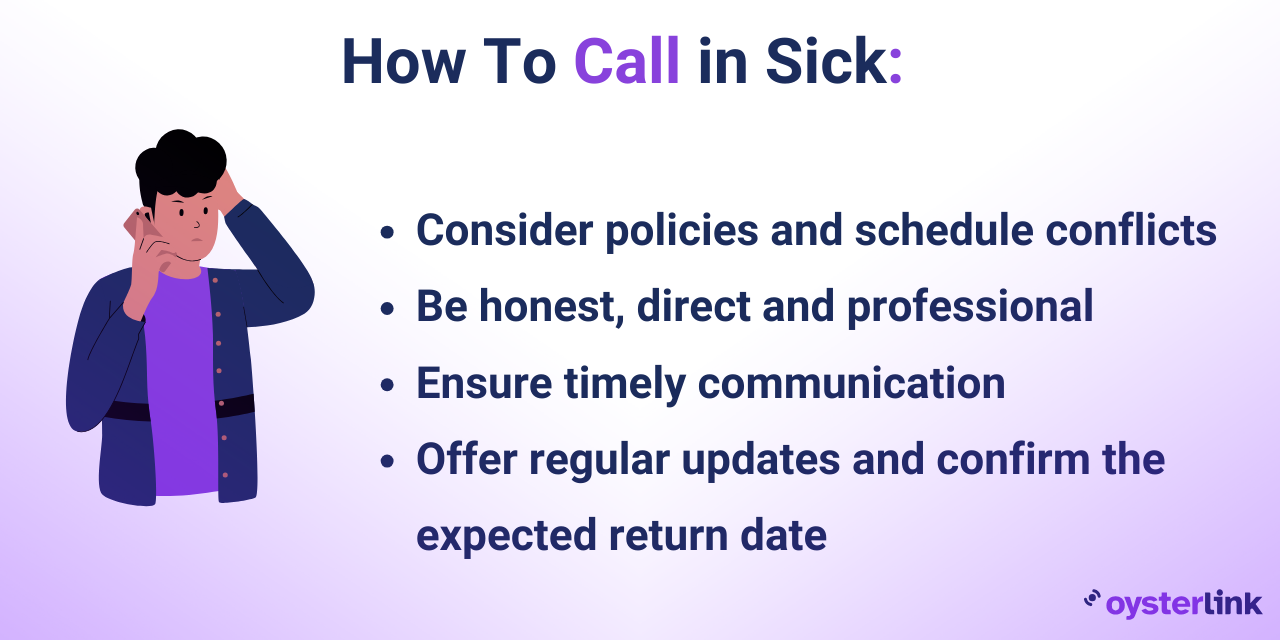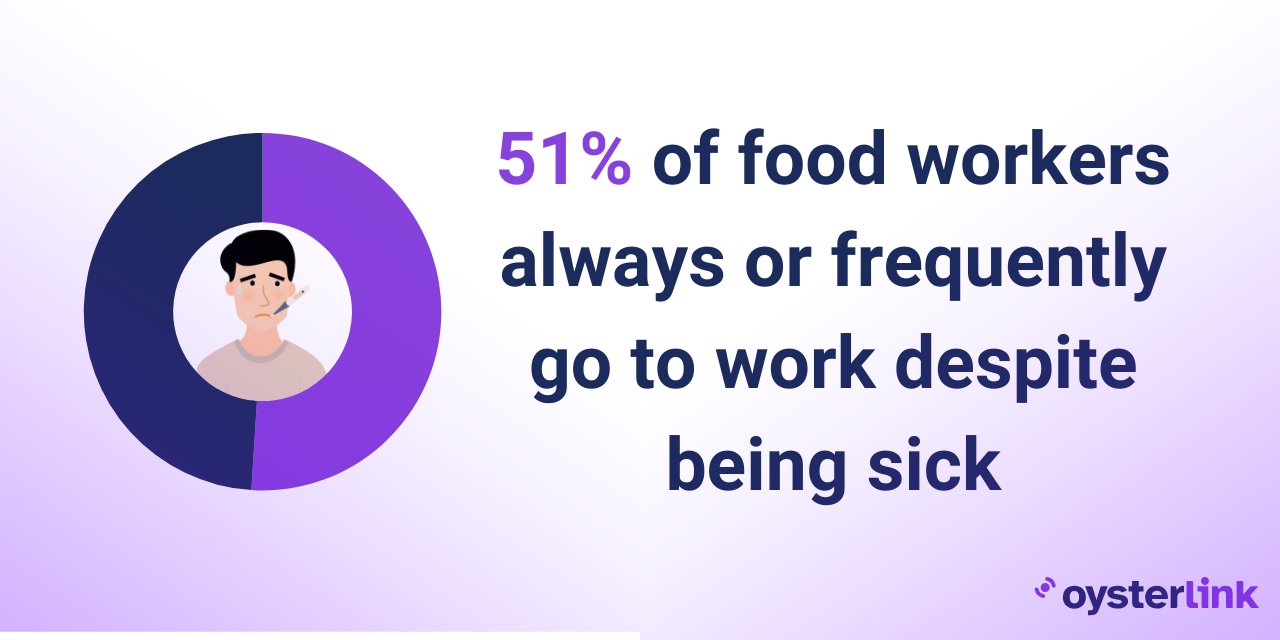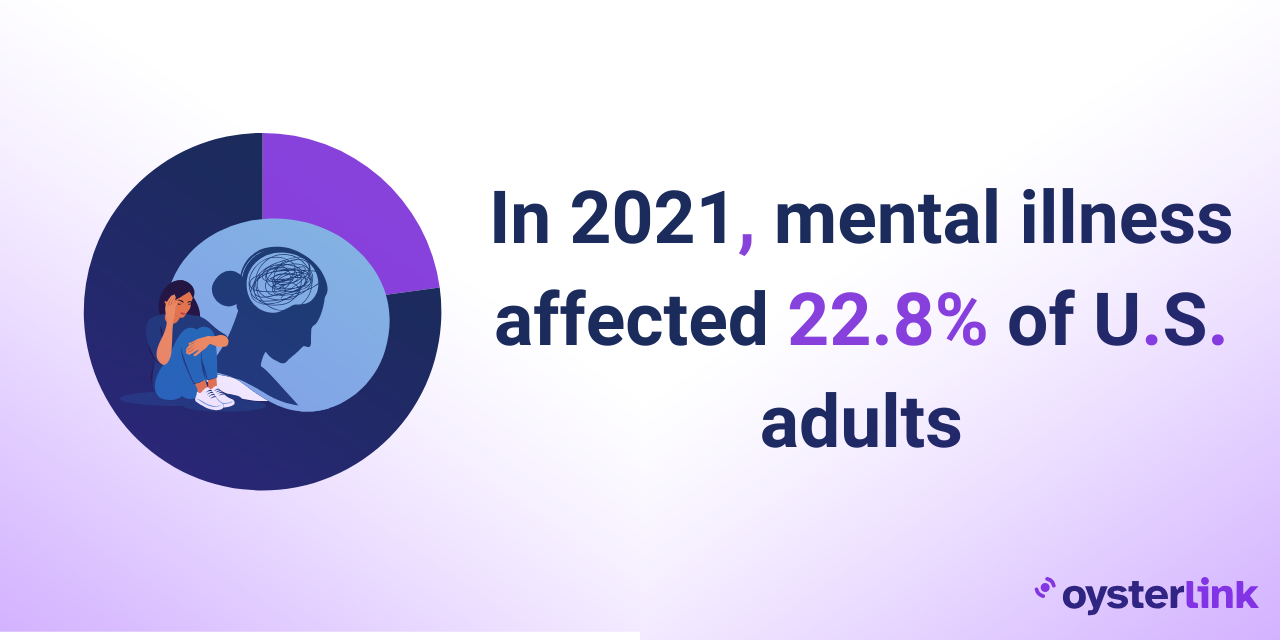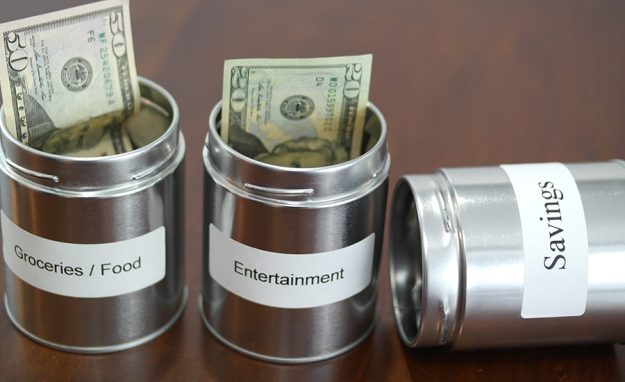The hospitality industry is known for its never-ending hustle and bustle, so taking a sick leave can feel like a luxury. Yet, health — both physical and mental — is paramount.
Given the hands-on nature of the job, taking time off when needed is not just advisable; it’s a responsibility, and knowing how to call in sick becomes a must.
In this guide, we will cover the best tips for calling in sick and valid reasons for taking time off. We will also provide examples you can use when messaging a request for sick leave.
5 Tips on How To Call In Sick
When notifying your employer that you’ll be taking the day off, the goal is to communicate effectively and responsibly.

Below are tips on how to call in sick.
1. Consider Policies and Schedule Conflicts
To showcase your professionalism when asking for a day (or days) off, you need to be prepared for any issues that might arise. Here’s what you can do:
- Review your company policy: Familiarize yourself with your company’s sick leave policy and procedures. Know who to contact and what information you’ll need to provide, such as the reason for absence and how and when they could reach you.
- Check your schedule and responsibilities: Review your work schedule to see if your absence will impact the restaurant’s operations. Identify what shifts and responsibilities need to be covered in your absence.
- Provide alternatives: If possible, suggest solutions to minimize the impact of your absence. This could include asking your colleagues to cover for you or helping with rearranging the work schedule.
- Plan communication: Decide how you will communicate your absence to your manager or relevant parties. Determine whether you need to call, email or use any specific communication channels set by your company.
2. Be Honest, Direct and Professional
When calling in sick as a hospitality industry worker, it’s important to communicate effectively and professionally. Here is how to best approach the situation:
- Be honest and direct: Start by clearly stating that you’re calling in sick. For example, “Hi [Manager’s Name], I regret to inform you that I won’t be able to come in to work today because I’m not feeling well.”
- Briefly explain your situation: Provide a brief explanation of why you’re unable to work. You don’t need to go into detail, but mentioning symptoms like a fever, nausea or vomiting can help your manager understand the severity of your illness.
- Convey apologies and gratitude: Express regret for any inconvenience caused by your absence and declare gratitude for your manager’s understanding. A simple “I’m sorry for the inconvenience” and “Thank you for your understanding” can go a long way.
3. Ensure Timely Communication
It’s best to call in sick as soon as you realize you won’t be able to work. This allows your employer time to make necessary adjustments to schedules or tasks.
Avoid waiting until the last minute as it can create unnecessary stress for your colleagues, and they might struggle to cover your duties or rearrange their own schedules at short notice.
4. Offer Regular Updates and Confirm Expected Return Date
To demonstrate professionalism, it’s important to maintain open communication with your manager or supervisor when calling in sick.
During your conversation, let them know you’ll be providing regular updates on your condition and express your commitment to keeping them informed.
Additionally, try to confirm (if possible) your expected return-to-work date to help your employer manage any necessary adjustments to schedules.
5. End on a Clear Note
To avoid any confusion, ensure that your point of contact understands your request by summarizing its key points.
Before ending the call or message, ask them if there’s anything they need from you. That way, their response will also serve as an acknowledgment of your request.
When To Call In Sick if You’re a Hospitality Industry Worker
Understanding when to call in sick depends on the severity of your condition and its potential impact on your ability to fulfill your job duties safely and effectively.
Here are some of the most common valid reasons to take a sick leave:
Physical Illness
Tech Times reports that 51% of food workers “always” or “frequently” go to work despite being sick, which poses risks to both colleagues and customers.

It’s crucial to stay home if you’re experiencing a contagious illness such as:
- Influenza (flu)
- Common cold
- Chickenpox
- Measles
- Norovirus (stomach flu)
- Pertussis (whooping cough)
- Impetigo (highly infectious skin condition)
Additionally, symptoms such as fever, severe pain or discomfort, vomiting, diarrhea or respiratory issues could interfere with your ability to work safely and effectively.
Physical Injuries
It’s crucial to stay home if you’re experiencing any physical injury or condition that could compromise your safety or ability to perform at your job. This includes injuries such as:
- Broken bones
- Sprains or strains
- Severe cuts or wounds
- Concussions or head injuries
- Back injuries
- Burns or scalds
- Fractures
Additionally, symptoms such as severe pain, dizziness, loss of consciousness, difficulty moving or significant swelling may indicate a need for immediate medical attention.
Mental Health Concerns
In 2021, mental illness affected 22.8% of U.S. adults, totaling 57.8 million people.

The Family and Medical Leave Act (FMLA) categorizes a serious health condition as an ailment, injury, impairment or physical/mental condition requiring inpatient care or ongoing treatment by a healthcare provider.
Conditions such as anxiety, depression, panic attacks or severe stress can impact your ability to function at work. If you’re experiencing any of these, it’s best to prioritize self-care and seek appropriate support, which may include taking time off from work.
Family Emergencies
It’s important to know that labor laws in most U.S. states cover family emergencies for sick leave, acknowledging the need to provide care for a sick child or dependent can arise unexpectedly.
Family emergencies can include a wide range of situations that require your immediate attention. These could be instances such as a sudden illness or injury of a family member, where your presence and assistance are essential for providing care during a challenging time.
Additionally, the need to provide care for a sick child or dependent can arise unexpectedly, requiring you to take time off from work to attend to their needs and ensure their well-being.
Doctor Appointments or Treatment
If you have a scheduled medical appointment or need to undergo treatment that cannot be scheduled outside of work hours, it may be necessary to take time off from work.
How To Call In Sick via Text
Effectively communicating your absence can make the process smoother for both you and your employer. The key is to be clear, concise and sincere.
Here are examples to help you craft your message, tailored to various situations:
For Physical Illnesses
Example 1: “Hi [Manager’s Name], I regret to inform you that I’ve come down with a stomach bug. Therefore, I will be staying home to recover and avoid spreading it to the team and our customers. I should be able to resume work by [Date].”
Example 2: “Hi [Manager’s Name], I woke up with a high fever and flu-like symptoms. For the safety of everyone, I think it’s best if I don’t come in today. Thank you for understanding and I apologize for any inconvenience this might cause.”
For Physical Injuries
Example 1: “Hi [Manager’s Name], I regret to inform you that I’ve injured my back, and it’s best I stay home to rest and recover to prevent worsening the injury further. I apologize for any inconvenience this may cause and I appreciate your understanding.”
Example 2: “Hi [Manager’s Name], I sprained my ankle last night and am in significant pain. To ensure I can fully recover, I will be taking a sick leave today. I apologize for any disruption this might cause, and I will update you ASAP if I can resume work tomorrow.”
For Mental Health Days
Example 1: “Hi [Manager’s Name], I’m going through a tough time mentally and need a day off to get professional support.Thank you for your understanding. I’ll be back tomorrow, ready to tackle my tasks with a better headspace.”
Example 2: “Hi [Manager’s Name], I’ve been experiencing sudden panic attacks last night and for my well-being, I need to take a mental health day. I believe it will help me be more effective and focused when I return [number of days] from now. Thank you for your understanding and support during this time.”
For Family Emergencies
Example 1: “Hi [Manager’s Name], there’s been a family emergency, and I need the whole day to address it. I assure you I’ll be back as soon as things are settled. Thank you for understanding.”
Example 2: “Hi [Manager’s Name], I need to take the day off to accompany my child to the hospital. I understand the timing isn’t ideal, but I appreciate your understanding.”
For Medical Appointments or Treatment
Example 1: “Hi [Manager’s Name], I have a medical appointment for a necessary procedure that requires my immediate attention. I need to take time off to undergo treatment and recover. Thank you for understanding and I apologize for any inconvenience this might cause.”
Example 2: “Hi [Manager’s Name], I need to see a specialist, and the only available slot is during my shift. Could I take some time off tomorrow? I understand the inconvenience and will try to swap shifts or make up for it.”
Wrapping Up on How to Call in Sick To Work
From Sous Chefs tirelessly working behind the line to Receptionists juggling multiple tasks at the front desk, the intensity in the hospitality industry is undeniable. But amidst this whirlwind, your health should remain a priority.
There’s an old saying in the industry, “You can’t serve from an empty vessel.” If you’re not feeling your best, you can’t give your best.
Therefore, taking time off when needed is not a sign of weakness but a testament to one’s commitment to quality service.
Encourage open dialogues about health in your workplace, advocate for mental well-being and always listen to your body.
Stay Ahead in Your Career Journey With OysterLink
Whether you’re finding your way on the job market or preparing for interviews, OysterLink offers you guidance every step of the way.
In our Spotlight section, you’ll discover:
- Detailed job descriptions that align the ideal candidate with the perfect role
- The latest trends and insights in the hospitality industry
- Practical interview guides to assist you in securing your ideal position
Oysterlink also offers insights into salary comparisons, aiding you in making informed career choices.
Explore our platform, where your journey to career success begins with the right information readily available.Get the latest restaurant job openings delivered to your inbox





